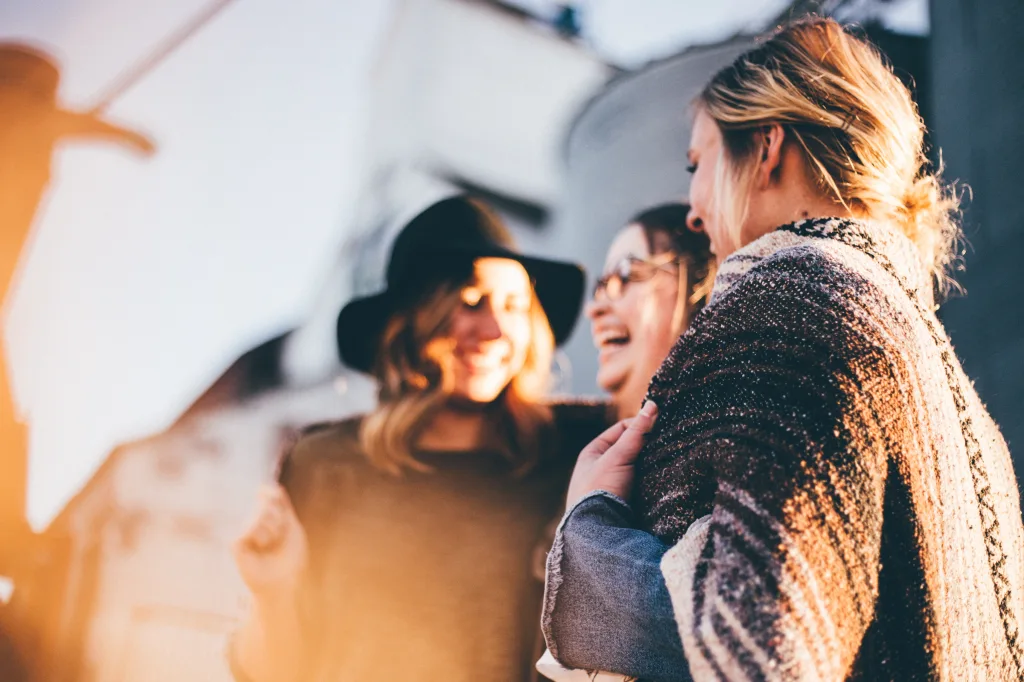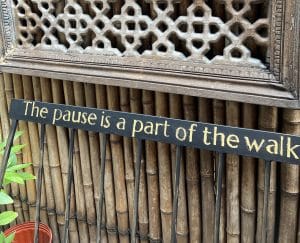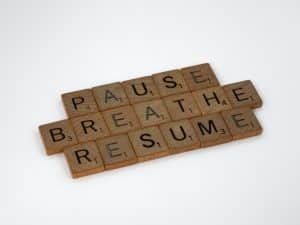
This past week, I lined up and did the thing. It took about an hour because it was a nice Friday afternoon, and I don’t think I was the only one who didn’t mind the excuse to slide away from work early for it.
You’re already on to me, I know. 😉 So, yes! I voted. If you’re in the US and eligible, I hope you either have or will do the same by Nov. 3.
To say that this election season has been contentious is an epic understatement. What I loved most about my hour waiting in line to vote, though, was how it was exactly the opposite of all of that.
In a matter of literal minutes, strangers became friends. “I like your shoes” became “I love that place, too!” and “Oooh, can you send me the recipe for that? Here’s my info.” Across distances of 6+ feet and through “smizing” eyes above masks, people found things to connect about while waiting to do something they’ve also found endless reasons to argue about. (Or, there are the rare moments like this one. Sigh.)
That’s all we really want, right? The chance to connect, and share, and smile with other humans. To make friends. To feel seen, and a part of something beyond our individual selves.
There’s an interesting line of messaging out there right now that tells us that it doesn’t matter what anybody else thinks about us an an individual. You should “do you,” and forget the rest. I get it. Nobody should spend their lives pretending to hold different preferences or values than they actually do. That’s not good for you, or the world.
But other people do matter. Connection and community matter. We’re social beings, and we’re wired to notice the way people around us respond to us because we need other people for our own survival.
Not the same way our ancestors did, quite explicitly for daily physical survival. For our spirit’s survival, though – individually, and collectively.
No, it’s not important that “everyone” like you, especially now that our “communities” span the globe. It’s probably not even possible. It’s not worth faking your way through life to meet anyone else’s expectations.
None of us will make it alone, though. You know this from business school, if that’s what brought you to this site. It’s true everywhere, though. You can’t make it through if you can’t learn how to work with people who have different ideas, opinions, and priorities than you do. The people who succeed most readily are the people who see that from the beginning, and lean into it. They leverage differences to expand options, and test hypotheses before they become expensive mistakes. They listen first, and speak or act second. The MOST effective among these are those who do all of this not just because they know it’s “good leadership,” but because they actually care about the humans with whom they interact.
We need to figure out how to find common ground with the people around us, or the seams of society begin to unravel. All the human parts of us will begin to rebel against themselves, instead of aligning in recognition of their startling similarities.
If it’s possible in a voting line in the US in 2020, it’s possible anywhere. On your learning team, with your agitated (and probably also stressed/burned out) colleagues, with your neighbor who always steals your parking spot, and with those who are scared enough of what they don’t understand to choose anger over the possibility of new friends.
Hopefully, if we stay open and intentional, it can happen everywhere.



